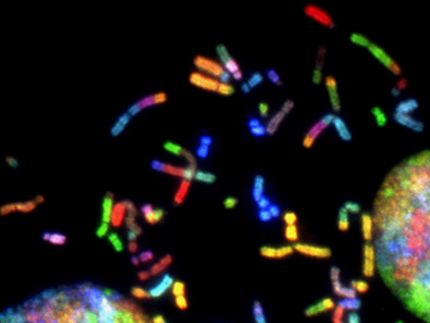Modified CAR T cells can preferentially target cancer cells and spare normal cells
Advertisement
Engineering chimeric antigen receptor (CAR) T cells to lower their affinity for the protein epithelial growth factor receptor (EGFR) made the cells preferentially recognize and eliminate tumor cells that have high amounts of EGFR while sparing normal cells that have lower amounts of the protein, according to a preclinical study.
CAR T cells that are currently being tested to treat B-cell malignancies target a specific protein present on leukemia and lymphoma, but these immune cells cannot distinguish cancer cells from normal cells, explained Cooper. Even though such CAR T cells attack cancer cells and normal B cells alike, the side effects are manageable, which may not be the case with solid tumors. "Many proteins that are present on solid tumors may also be present on normal cells that are vital to the body. So, while recipients of CAR T cells can tolerate the loss of normal B cells, they cannot endure damage to vital structures if the engineered T cells inappropriately damage essential tissues. Because of this, CAR T-cell-based immunotherapy may not yet be entirely safe for patients with solid tumors," added Cooper.
To make CAR T-cell therapy applicable to solid tumors, Cooper and his colleagues developed CAR molecules with reduced affinity for a target on solid tumors. The target they chose in this study was wild-type EGFR, a protein that is present at high levels in certain brain cancers, but is also found at low levels on some normal cells. These experiments were performed by Hillary Caruso, PhD, while a graduate student with Cooper.
The researchers used two monoclonal antibodies, cetuximab, which has higher affinity for EGFR, and nimotuzumab, which has lower affinity for EGFR, and from these, they engineered high-affinity cetux-CAR T cells and low-affinity nimo-CAR T cells.
The researchers tested the different CAR T cells on cancer cells with high levels of EGFR and normal cells with low levels of EGFR and found that while the cetux-CAR T cells killed both cancer and normal cells, the nimo-CAR T cells were selectively activated only in response to cancer cells, but not normal cells.
The researchers then tested the CAR T cells in mice bearing human brain cancer cells expressing high levels of EGFR and found that both cetux- and nimo-CAR T cells were equally effective in inhibiting tumor growth. However, the cetux-CAR T cells caused significant toxicity to the mice, leading to death in some, whereas the infused nimo-CAR T cells were safe. The researchers further tested the new CAR T cells in mice bearing cells that had low levels of EGFR (to mimic normal human cells), and found that unlike cetux-CAR T cells, the nimo-CAR T cells did not impact the growth of these cells.
In an interview, Cooper said, "The goal of the study was to make CAR-expressing T cells differentiate friend from foe. We wanted to provide CAR T cells an improved opportunity of targeting a protein that is overexpressed on a cancer cell and spare normal cells that may also have the same protein, but at lower levels.
Original publication
Hillary G. Caruso, Lenka V. Hurton, Amer Najjar, David Rushworth, Sonny Ang, Simon Olivares, Tiejuan Mi, Kirsten Switzer, Harjeet Singh, Helen Huls, Dean A. Lee, Amy B. Heimberger, Richard E. Champlin and Laurence J.N. Cooper; "Tuning Sensitivity of CAR to EGFR Density Limits Recognition of Normal Tissue While Maintaining Potent Antitumor Activity"; Cancer Research; 2015
























































